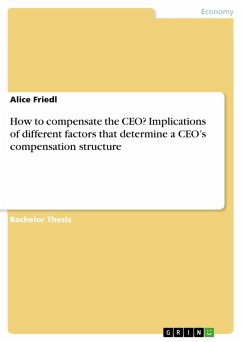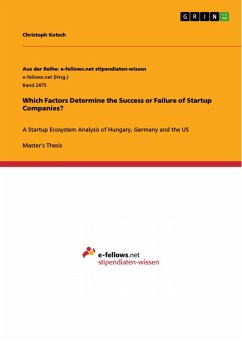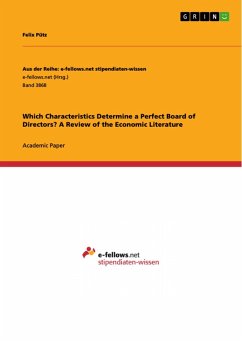Bachelor Thesis from the year 2019 in the subject Business economics - Business Management, Corporate Governance, grade: 1,3, Friedrich-Alexander University Erlangen-Nuremberg, language: English, abstract: The objective of the present thesis is the presentation of the most important theoretical ideas to determine an adequate compensation for top managers and their empirical verification. Basis of the empirical assessment are the remunerations of the CEOs of five German companies and business units with diverse sizes and ownership structures. The principal-agent theory has proven most relevant, concluding a pay-per-performance remuneration structure that aligns the financial interests of the company and its executives. The balance between short-term goals and sustainable growth is achieved by a mix of selected short- and long-term incentives. Empirical evidence shows that recently size has become a major determinant of management remuneration and the pay-for-performance link is increasingly weak. Overall the empirical results of the thesis imply that the principal-agent theory is still seen as a valid instrument to create a balanced and for both parts favorable pay package. However, the use of long-term rewards to create sustainable growth is neglected in smaller companies. Size is seen as a relevant factor. The CEO-worker pay ratio is estimated unsuited and insignificant for determining executive compensation.
Dieser Download kann aus rechtlichen Gründen nur mit Rechnungsadresse in A, B, BG, CY, CZ, D, DK, EW, E, FIN, F, GR, HR, H, IRL, I, LT, L, LR, M, NL, PL, P, R, S, SLO, SK ausgeliefert werden.









